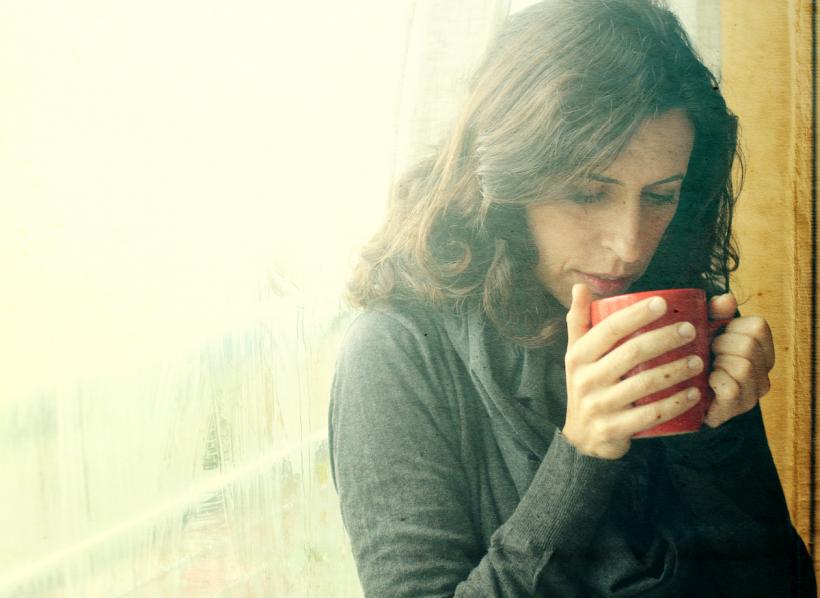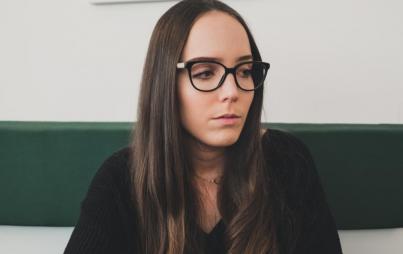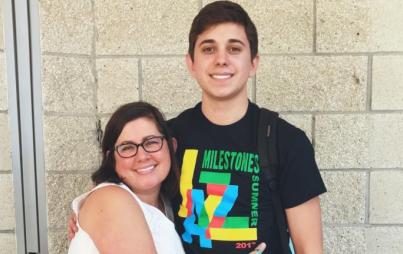
If I stop taking my medications, what will my life become? (Image: Thinkstock)
October 2-8 is Mental Illness Awareness Week.
“How important is it for you to have your own biological children?”
Dr. G leaned forward in his chair, waiting for my answer with a neutral expression. I hoped mine matched his, but inside, I was panicked.
For the majority of my life, I was certain that I didn’t want to have children — by conception, adoption, or fostering. I even wrote about it, and recently. Though I listed many arguments, reasons, and fears, my central thought was always What if I lose myself by becoming a parent?
On Father’s Day of all days, I changed my mind.
I had reconnected with an old friend on Facebook and saw that she had recently had a baby. I looked at her photos: full-bellied and dressed in white for her baby shower, sleepy and happy with her newborn son, fresh-faced with her partner on a hike, toting their son on in a backpack carrier.
I was surprised at how adorable I found her child, how taken I was with his rounded cheeks, his quirky expressions, the creases on his arms and legs caused by his baby fat. But I was truly transfixed by the number of pictures that showed my friend without her son: looking cute in a camouflage onesie, made-up with beautifully curled hair when she was out with her partner, drunkenly attacking a slice of pizza.
I saw that it was possible to be a mother without losing everything else that I was and a place of tension inside of me unwound.
I realized that I wanted to be a mother, but I never knew I could do it on my own terms.
That night, I asked my partner to talk with me. I asked him to sit down, even made him take a swig of his beer before I started talking. But when I told him this was something I wanted, he responded with enthusiasm. He told me he absolutely wanted to have a child with me, but that he thought I never would share in that desire.
We kissed and smiled wide and celebrated the image of our future family. It was beautiful.
Usually when a heterosexual couple decides to have a child, it’s a private matter. They might tell their parents, siblings, or closest friends. Maybe she’ll tell her doctor if her birth control needs to be removed, like an IUD or an implant, or if a prescription needs to be discontinued. But once they’re ready, they can start trying to conceive almost immediately, without needing education or preparation.
For us, it’s not so easy.
I live with bipolar II disorder, generalized anxiety disorder, ADHD, and complex PTSD. I take Effexor, Klonopin, Depakote, and Adderall. I knew I needed to talk to my psychiatrist about what changes I’d need to make before we could try to have a baby. The chances that none of these medications would affect a growing fetus was impossible in my mind. But I never expected what Dr. G told me.
I look back on my notes from that appointment and they’re fairly bleak:
Stimulants are no good while pregnant (lower dose or not XR?)
Klonopin is 100% OUT — no benzodiazepines
Latuda? instead of Depakote
High potency omega 3 will help ADHD
None of my medications could remain untouched. And for good reason:
According to the CDC, Effexor can cause congenital heart defects and cleft palate. A baby can also be born with his/her intestines outside the body, due to a hole in the abdomen, or be born without portions of the brain or skull.
A Harvard Med School mental health letter says that Klonopin can increase the risk of cleft lip of palate, as well as floppy infant syndrome, breathing and feeding problems, and vomiting.
The FDA states that Depakote can increase the risk of neural tube defects, like spina bifida, 30 to 80 times more than a “normal” woman.
The FDA also notes that Adderall can cause problems with learning and memory, premature delivery (including spontaneous abortion), and low birth weight.
If I stop taking my medications, what will my life become? What will I be able to accomplish in my work life? Worst of all, how would all of this unchecked mental illness affect my fetus?
Any one of these potential side effects would bother me, but the sheer mass of potential detriments to my and my partner’s child has caused me to seek out alternatives. But there is a gap in the scientific literature that continually frustrates me to the point of despair. Again and again, I run into phrases like “lack of comprehensive data,” “there is limited information,” and “no recent studies are available.”
I understand the ethical problems with conducting research on pregnant women and their unborn children, and, even if it didn’t exist, what mother would want to want to take part in such a study? But it does present a significant issue for those of us who need this information.
Without medication for bipolar disorder, I’m often tremendously depressed. I sleep far more than I’d want to at night and I’ll usually need to nap during the day. My antidepressant and stimulant combat the fatigue and give me focus.
Before I started Depakote and Klonopin, I wasn’t able to maintain a constant mood throughout the day. Of course, outside factors will influence my feelings now, but I’m not having daily panic attacks or flipping wildly from depression to mania.
If I stop taking my medications, what will my life become? What will I be able to accomplish in my work life? Worst of all, how would all of this unchecked mental illness affect my fetus?
Article headlines don’t make things any easier:
DO PREGNANCY AND BIPOLAR MIX?
PTSD PRESENTS A PREGNANCY RISK, MEDICATED OR NOT
BIPOLAR PREGNANCY: PLAYING WITH FIRE?
DEPRESSION AND PREGNANCY: THE TERRIFYING DILEMMA
WHEN PREGNANCY BRINGS ON PANIC ATTACKS
If I hadn’t already been diagnosed with mental illnesses, reading these would have caused me to develop one.
There are some options that pose relatively low risk to me and my future child, but they seem either toothless or terrifying. The safest options seem to be the ones that I’ve already tried and that, on their own, have failed.
Pregnant women in situations like mine are encouraged to go to therapy, to build a strong support network, to do yoga, to get acupuncture or massage therapy, and to “look for the positive things in your life.” Yes, that is a direct quote from the United Kingdom’s National Health Service. As lovely as this all seems, yoga, therapy, and massages didn’t much help me before — why would it help me later, in the midst of my first pregnancy?
The other option seems to be electroconvulsive therapy — a poorly named treatment if ever there was one. It brings death penalty by electrocution to mind, but with the dial turned down. Even so, all sources I’ve checked say that there are little to no risks to the fetus and that it can be therapeutic for mood disorders.
All the same, the idea of triggering an intentional seizure under general anesthesia two to three times a week for a month — all while pregnant — doesn’t send me skipping to the doctor’s office. Not to mention the follow-up visits... but these are the sacrifices mothers make for their children.
It’s possible that the risks of conceiving my own child may outweigh the rewards of giving birth. In which case, we’d look into adoption, but there are difficulties there, as well. Adoption requires undoing scrutiny from a social worker who would examine my home, my finances, my life from childhood to present, and my physical health. Even if I feel that my mental illnesses wouldn’t impair my parenting, who’s to say someone else wouldn’t?
The night of joy when we decided to make a baby seems sometimes to be so close. Other times, it seems like a foolish dream. But despite all the unknowns, I want to be a mother and my desire is the same as any other mother-to-be: a happy healthy child. Ten fingers. Ten toes.








